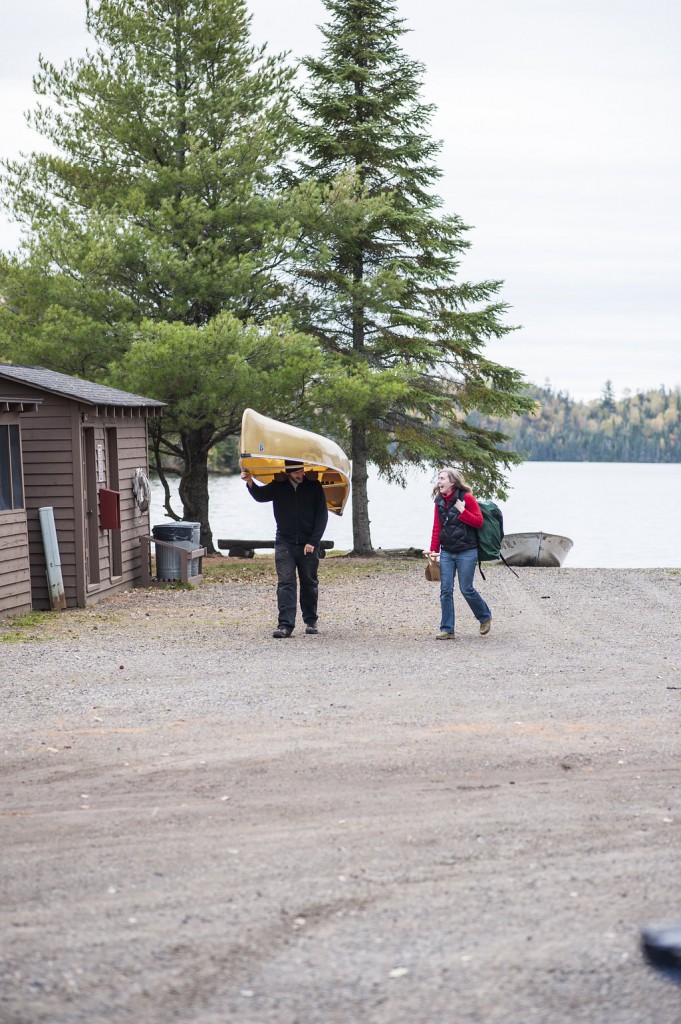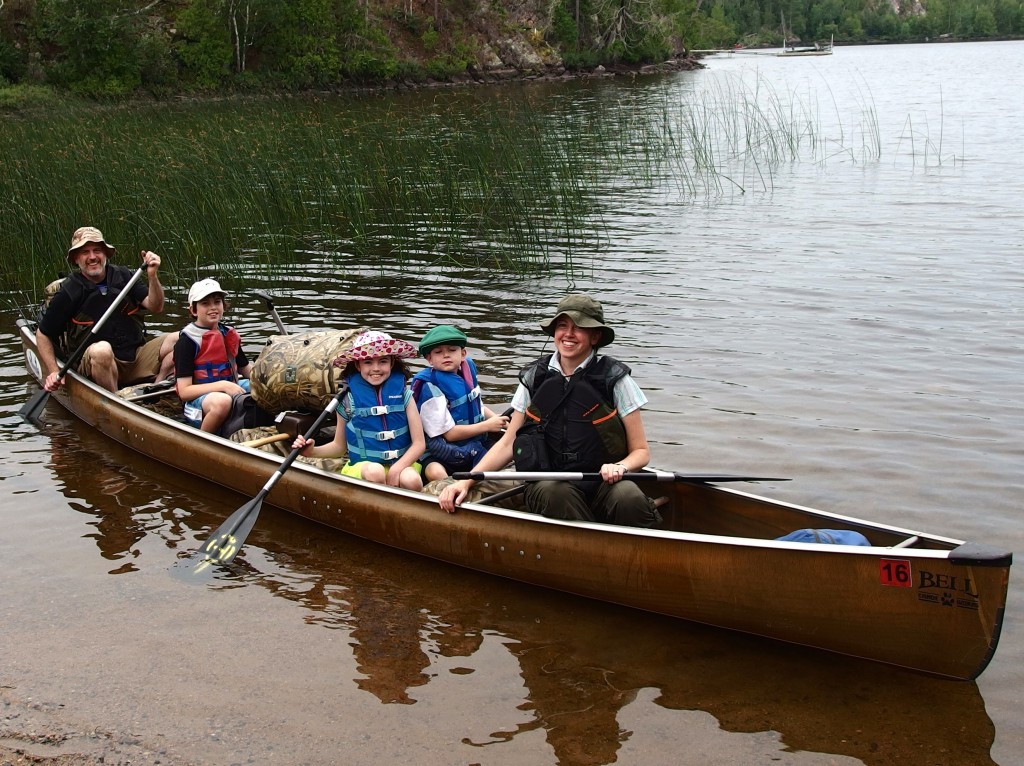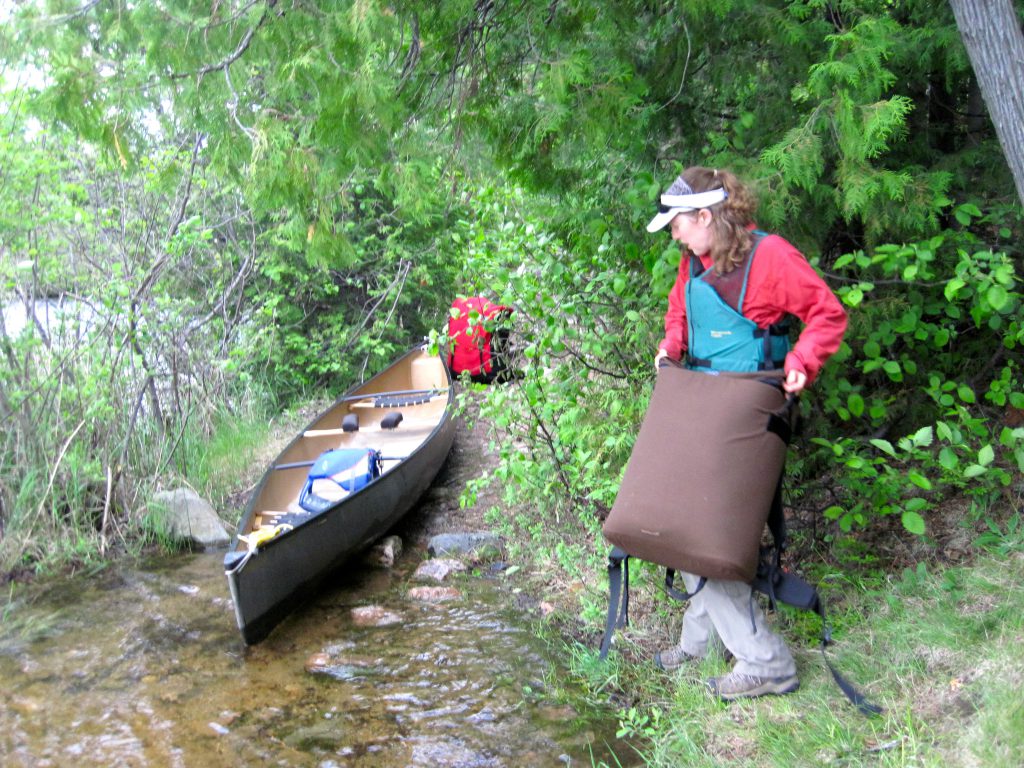If our Pinterest account can be believed, a handful of the people who end up on our website each day are driven by this question: “Is a Boundary Waters trip right for you?” Granted, if you’re reading this blog post, you probably already know a Boundary Waters/Quetico trip works well for you, but we figured we’d take this information that’s been buried on our trip planning page so it’s easy to find and share with people you know who can’t quite decide how they feel about canoe tripping.
Obviously, we’re biased: we think everyone should experience the Boundary Waters and Quetico. (Check out our 10 reasons why every 20-something should canoe trip.) If you’re on the fence about taking a trip to America’s most popular wilderness area, here’s some real talk about what a canoe trip is all about to help you determine if a BWCA trip is right for you.

Do you like being outdoors?
Kind of a no-brainer, but the people who get the most out of their Boundary Waters experience are folks who gravitate towards spending time outdoors no matter what corner of the world they’re in. Previous camping experience definitely isn’t a pre-requisite for enjoying a BWCA canoe trip, but it is helpful if you feel at ease being outside for extended periods of time.
Are you comfortable on self-guided adventure and do you trust yourself or someone else in your group with navigation?
Tuscarora does not offer guided canoe trips in the BWCA and Quetico. 100% of our outfitting guests successfully navigate canoe country independently. We’ll set you up with the maps you need for your trip and go over your route carefully to mark any confusing spots before you leave our office, but you’ll need to actively navigate during your entire trip.

Do you like the idea of going off the grid?
Your cell phone won’t work in the Boundary Waters and Quetico and even if you bring an emergency communication device like a satellite phone or texting device, it can be hours before emergency responders reach your group. Boundary Waters campers are responsible for their own safety. You can help yourself avoid medical emergencies by moving carefully on portage trails and practicing extreme caution when using axes, saws, and fires.
Do you have stamina and can you tolerate moderate physical discomfort?
Almost all canoe trips require portaging, meaning you pick up all your gear, canoe, and paddles and carry them from one lake to the next. While the majority of portages are less than a ½ mile long, even the shortest portage can be strenuous. You can avoid a lot of the physical demands of a Boundary Waters trip by opting for a base camp canoe route. Part of going on a canoe trip means you will have wet feet from time to time and that you’ll be sleeping on the ground. A canoe trip is a far cry from the all-inclusive vacation, but we think you’ll find it an extremely rewarding and memorable experience.

Are you a-okay with things not going exactly according to plan?
Although people often refer to the Boundary Waters Canoe Area Wilderness as a “park,” the BWCA is very different from what you’ve experienced in a U.S. National Park. The BWCA is maintained to be, well, wild. There aren’t signs marking portages or lakes and you’ll probably run across at least one spot where the portage trail is obscured by fallen trees or flooding. The weather in northern Minnesota is highly variable year-round so make sure you pack good raingear and plenty of warm clothing, no matter what time of year you visit.
If you answered “YES!” to those five questions, congratulations, a Boundary Waters adventure sounds like a great fit for your personality. By setting realistic expectations for your canoe trip, you can have the trip of a lifetime and you might even like it so much that you come back year after year to explore different routes and seasons.

